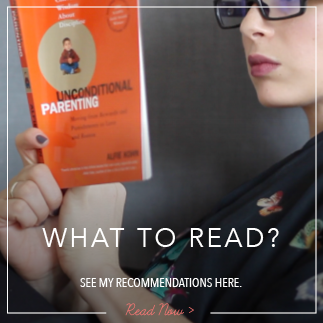Criticism vs Critique – How to Speak Your Mind
Giving criticism vs critique will be the difference between hurting and helping. Criticism tends to hurt relationships, corrode trust and deplete “good will” between us all… however, offering our honest opinions is necessary and useful – so what can be done?
I don’t think any of us respond very well to criticism. However, I’m a big believer in critique. Because I think some constructive feedback that comes from a well intentioned place can be really helpful.
But you might be confused – what’s the difference between criticism and critique?
Criticism vs Critique & Critical Thinking
Today, I want to talk about the difference between criticism vs critique. It is incredibly helpful for us in how we thinking critically and talk to ourselves, to our partners, to our children, and about, for example, the school system or anything else that we want to critique.
Watch now!
My Experience with Critique & Criticism
Critique and criticism were a large part of my time in design school. The professor would give us an assignment and once completed, they would critique each person’s work in front of everyone else.
When Constructive Criticism Wasn’t So Constructive…
The critique was very helpful for me, but there were times when constructive criticism wasn’t so… constructive.
Professors ripped papers off the wall, made it personal, and found fault with the person and with the piece.
Those professors weren’t actually reviewing the work. They weren’t coming from the energy of trying to help, of giving commentary, of discussing specific issues…
These professors were not giving a critique – they were criticizing the designer or the work.
Do I Critique or Criticise School?
Let’s bring it to my critique of school (and I’m talking about school as a massive umbrella term here.) I was recently told, “If you don’t have anything nice to say, don’t say anything at all.”
I was also given a hefty dose of, “Don’t bring others down to build yourself up,” and “You’re bashing other people… this is not okay.”
I think we have to be able to talk about the merits of school. And the downsides!
Just like in design school, we have to be able to have honest conversations and apply critical thinking to school (or spanking or vaccinations or home birth or…)
We have to be able to critique these lifestyle choices and honestly review their pros and cons.
In our culture, there seems to be this idea that we shouldn’t say anything if we don’t have something nice to say.
I agree with that, but just disagree with the definition of “something nice to say.”
Critique vs Criticism – What’s the Difference?
Let’s take a look at critique vs criticism. And I’m actually taking this from Writing Alone, Writing Together by Judy Reeves. She outlines the difference between criticism and critique.
CRITICISM Looks to Find Fault
Criticism is focused on what is lacking.
“You’re at fault.”
“You’re to blame.”
“This is wrong.”
CRITIQUE Looks at the Structure of the Thing
Critique is deciphering.
“What about this works?”
“What doesn’t?”
“I love when you do this..”
“It’s helpful when you…”
In the case of school…
Criticism would just be saying, “Here are all the awful things that happen in school.”
Critique would say, “Here’s what we can get from schools. And here’s what we want in schools. And here’s what works.” And if that’s not happening in schools, we can be honest and kind about it, and still say it truthfully!
CRITICISM Condemns What it Doesn’t Understand
Another thing I definitely saw in design school is that people would criticize, saying, “Oh, this is off because I don’t get it.”
Whereas…
CRITIQUE Asks for Clarification
Critique would say, “What were you trying to say here? Can you explain what your thinking was? Why did you choose this color? Ah, okay, well, by the way, that message didn’t come across, let’s see how we can get it across better. “
CRITICISM is Spoken with a Cruel Wit & Sarcastic Tongue
I think the most important point about the differences between criticism and critique is the energy from which it comes.
Criticism comes from an energy of anger. It’s coming from an energy of cruelty, of trying to tear someone down, perhaps to build yourself up.
CRITIQUE’S Voice is Kind, Honest, and Objective
Critique is really trying to look at the subject at hand and be honest about whether or not it believes it’s of service.
CRITICISM is Vague and General
This is an incredibly important point because when you’re giving your partner or your child criticism, and you’re just saying something vague or general (“You’re so disrespectful!”) it means that the energy you’re coming from is just to bring the other person down. It doesn’t help them.
CRITIQUE is Concrete and Specific
Instead of saying, “You’re always on your phone,” critique says, “During dinner time, would you mind please making sure that your phone is away from the table? That would be so wonderful.”
That’s specific. That’s setting them up for success. It’s actually giving them something concrete that they can hold onto rather than just saying, generally, “You’re failing with your phone.”
CRITICISM Has No Sense of Humor
Criticism looks for the flaws in the person. “You never know what you’re doing.”
CRITIQUE Insists on Laughter
Critique says “You know what? This didn’t work. This was a total flop. I totally get how we got here. Let’s figure out the next steps.”
It’s being specific, concrete, and not making the problem personal.
How to Talk About What’s NOT Working
So I think there’s a big difference between criticism and critique. The Dalai Lama says “Be kind whenever possible. It is always possible.”
It is possible to point out the things that aren’t working, the things that need to change, the things that need to be improved without being unkind.
That’s the goal when I talk about things that I don’t think are working in our mindsets, in our behaviors, in our systems, and our institutions.
I take the goal that what I say comes from kind energy. From the energy of looking for ways to improve, not from energy of blame or finding fault with people and making it personal.
REMINDER: We Are Not Fragile
I think that we need to live in a culture where we’re not so fragile that we can’t handle critique.
I want to live in the kind of world where it’s okay to point out the things that are great about something and the things that still need to be improved, without that meaning that we’re attacking someone. A world where we don’t have to shut down conversations just because there’s critique involved.
I’m a Huge Believer in Critical Thinking
I am a huge believer in critical thinking! I believe it is not only our right but our obligation to think critically about the things around us.
If something’s not working in our marriage, in our parenting, in our health, in the way our home is set up, in the way our children are being parented, or whatever, we need to be able to think critically and critique.
I really love it when people speak their mind, even if it’s an uncomfortable truth. I think critique is how we learn. It’s how we grow. and being open and curious about it is a sign of maturity.
It’s a sign that we’re not taking things personally. We’re not offendable, we’re talking about the actual merits of the actual thing. We’re not making it about us.
Take the Pledge Against Criticism
Today, let’s take the pledge together that we aren’t going to engage in criticism. It’s incredibly insidious and damaging, and only spikes defensiveness.
Instead, let’s all be open to hearing and open to giving honest, kind critique.








0 comments